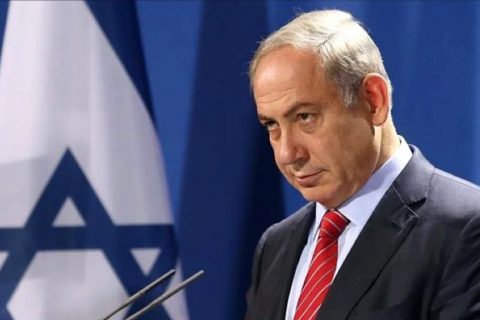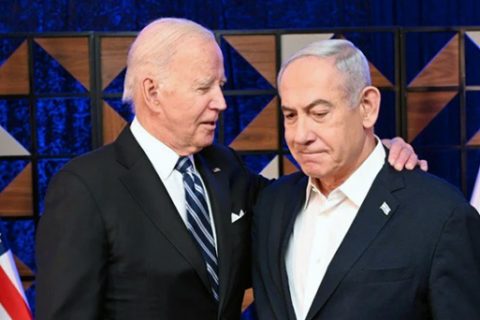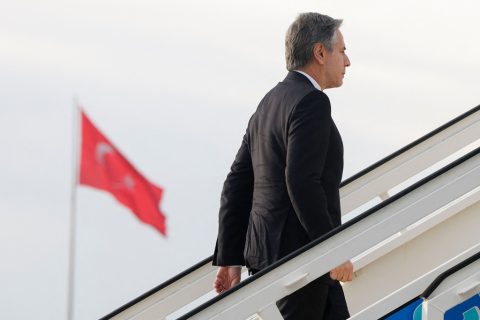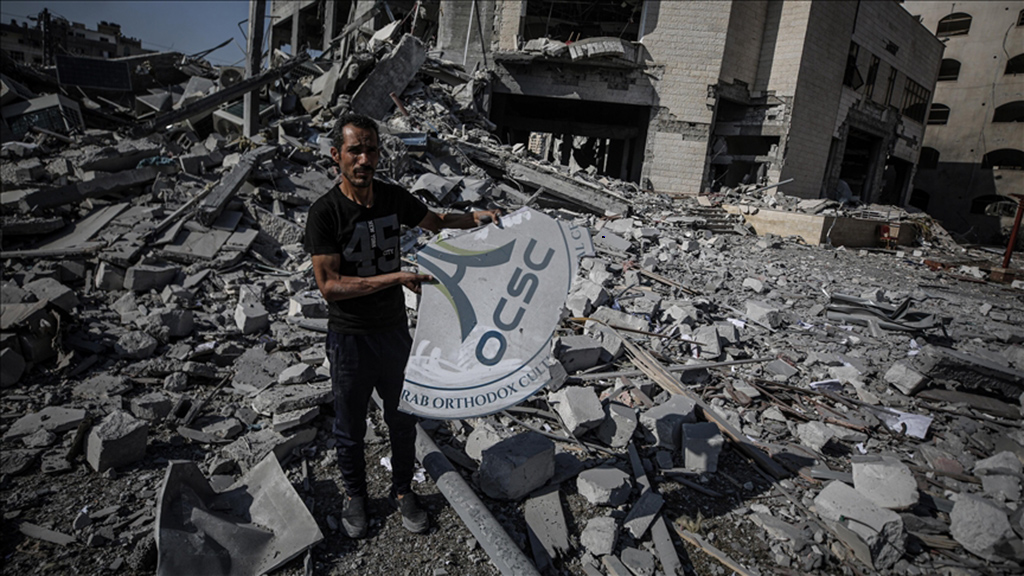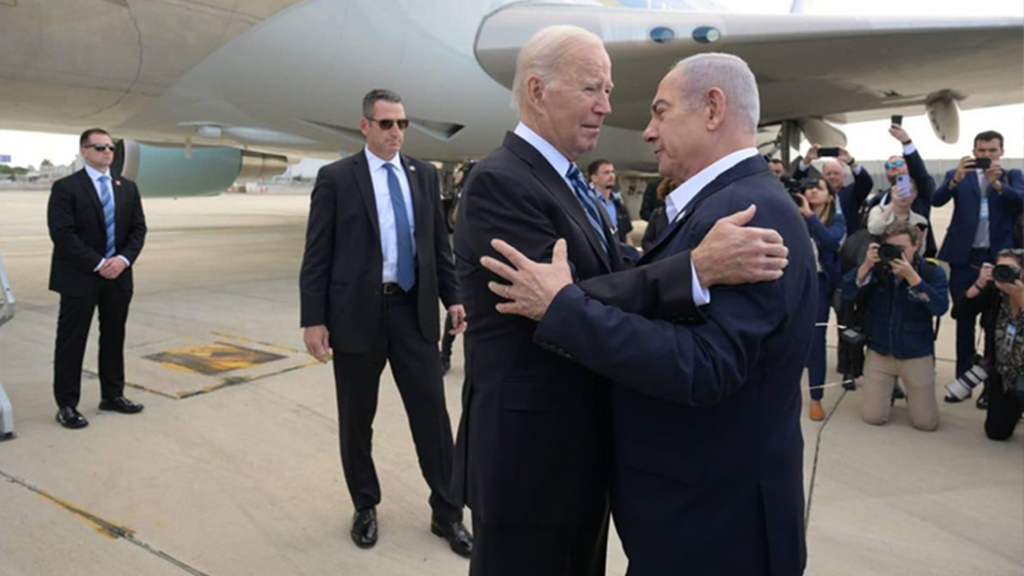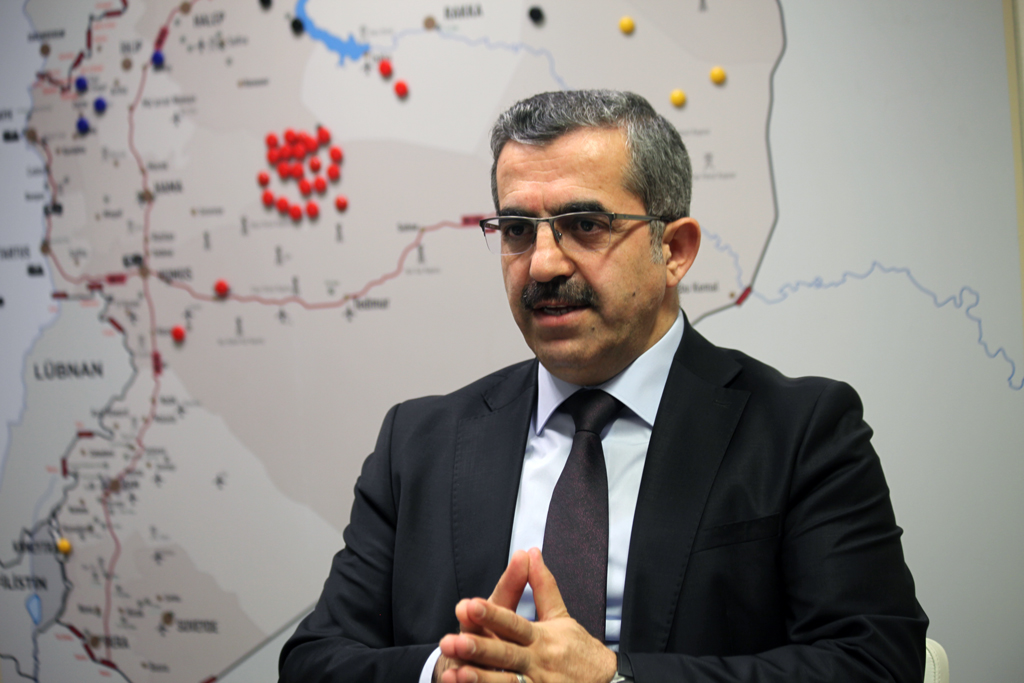American-Israeli Alliance
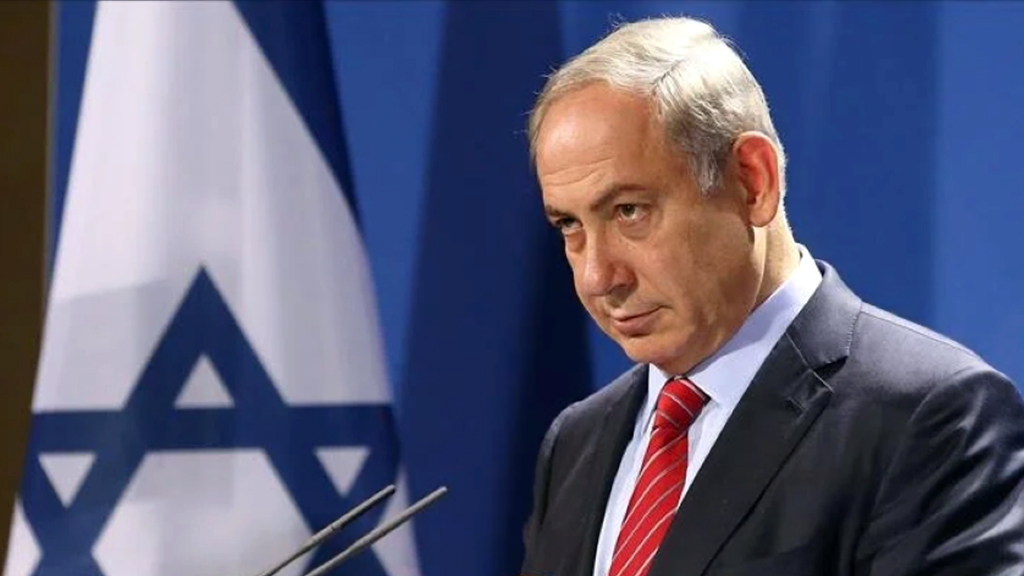
Netanyahu’s Iran card…
| OpinionIn response to Israel’s striking of Iran’s consulate in Syria, Ayatollah Khamenei’s statement of “retaliation …
-
Opinion
Netanyahu’s Iran card…
By Kadir ÜstünIn response to Israel's striking of Iran's consulate in Syria, Ayatollah Khamenei's statement of "retaliation will be given" has heightened the possibility of the regional proxy war escalating into direct conflict. Since October 7th, Netanyahu has been attempting to expand the conflict by targeting Hamas and Shia militia objectives in both Beirut and Syria. The relatively controlled continuation of the "regional war" relied on Iran and Hezbollah refraining from militarily supporting Hamas. However, Khamenei's remarks suggesting that striking the Iranian consulate would mean targeting Iranian soil have also put Washington on high alert.
-
Opinion
Is it possible for Biden to please Netanyahu?
By Kadir ÜstünThe Biden administration has been under pressure, as reported in the media for some time, to bring an end to military operations, facilitate humanitarian aid, and address the post-war governance of Gaza, especially considering the lack of positive response from the Netanyahu government. Reports suggested that Netanyahu's government did not respond positively to these requests, and there were indications that Washington's patience was wearing thin. The latest news, where Biden reportedly told Netanyahu that the ultimate solution is a two-state resolution, was quickly countered by Netanyahu stating that this possibility is not on the table, creating a significant setback for Washington. With these statements, Netanyahu not only declared the obvious but also made it clear that under his leadership, there would be no genuine peace process, embarrassing the American President, his biggest supporter, in the eyes of the public.
-
Opinion
US otherization policy toward Türkiye
By Muhittin AtamanThe United States has been doing almost everything to otherize and alienate Türkiye throughout the last decade. The damaging steps taken by the last three U.S. governments, namely Barack Obama, Donald Trump and the current Joe Biden administrations, show that anti-Türkiye policy has become the state policy.
Bu Konuda Daha Fazla
-
Washington’s Gaza deadlock
By Kadir ÜstünThe Biden administration hasn't fundamentally altered its unwavering support for Israel since the beginning of the crisis. However, in the face of heavy criticism from the international community, regional countries, and even its own party and American public, especially in the past two weeks, it has started emphasizing the humanitarian crisis more. As Washington increasingly finds itself isolated on the international stage, it has begun to add qualifiers, such as the need to protect civilians and ensure humanitarian aid access, while reiterating its full support for Israel. Reports have also suggested that Israel is preparing for a large-scale invasion of Gaza, but Washington is recommending a narrower operation that takes into account the safety of hostages and civilians. The change in rhetoric seems to reflect the administration's growing awareness of the need to alleviate public pressure.
-
The US and Israel on Gaza: Biden and Netanyahu...
By Rod SuchIn the wake of the October 7 Hamas attack on Israel and the ongoing Israeli retaliation, is there anything different in the U.S. government’s response this time around?
-
What the 3rd US intervention means for Gulf’s future
By Burhanettin DuranAfter U.S. President Donald Trump had the United Arab Emirates (UAE) and Bahrain sign the Abraham Accords on Sept. 15 at the White House, people have been wondering which Arab country will be next.
-
UAE-Israel deal: Formalization of de facto relations
By Muhittin AtamanDespotic Arab regimes must cooperate with western states, Israel to maintain power, says analyst
-
Trump’s Jerusalem Move
By Kadir Üstün By Kılıç Buğra KanatThis critically important book includes chapters both contextualizing and discussing the U.S. administration’s Jerusalem declaration in great detail. Various sections authored by American, Latin American, European, and Turkish authors examine the international responses to the U.S. President Trump’s declaration.
